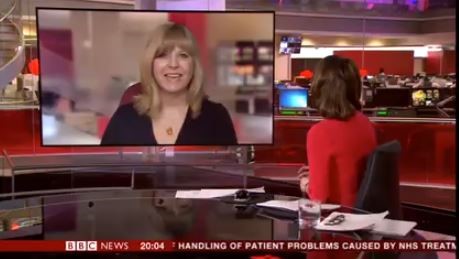When claimants found they were unable to bring a negligence claim against the police, they accused the police of violating their human rights: the right not to be subject to torture or inhuman and degrading treatment under the European Convention of Human Rights (ECHR) Article 3.
Professor Conaghan, who has been following the case since Worboys was convicted in 2009 and has written extensively about it in the context of her research on the legal aspects of violence against women, provided expert commentary in an interview with BBC News 24. Below is a transcript of the interview, which took place on 21 February 2018.
Why is this such an important ruling?
“Well, it’s important for a number of reasons. First of all, it’s the first time the police have been held accountable in law to individual victims of crime for failing to properly investigate. Previously, under the common law of negligence, the courts have taken the view that the police should not be liable, and as a result, the victims have tried to explore other avenues; they explored the human rights avenue, and that has been successfully upheld today, so it’s an incredible victory.”
And what are the implications for police forces and policing?
“I think the implications for policing are good. This is a very, very serious set of failings and there has to be some measure of accountability here, because if not then the public just lose all confidence in the police, and the police need public confidence in order to do their job properly. It’s also the case that when it comes to investigating sexual crimes, the police come from a very low base, in the sense that some of us do remember that famous documentary, a few decades ago, about the Thames Valley case and their investigation of rape, where they treated rape victims really terribly. We’ve come a long way since then, but the problem is that there are a lot of policies in place but they’re not really implemented in practice. There are people within the police force who want to see them implemented, and I think this will empower them to bring about change from within. So I think for the police, this is a good decision, as well as obviously for the victims.”
Nonetheless is the logical conclusion from this ruling that the police forces need the threat of legal action to properly investigate cases, that’s worrying isn’t it?
“Well, there have been so many reviews and reports and recommendations, most of them set up by a succession of governments, investigating why police have failed in the context of rape investigations in particular, and these recommendations have produced policies - the problem has been that the policies have not been implemented or the implementations are patchy. So you get situations where some police forces in some regions are doing an awful lot better than others in terms of how they treat complainants of rape and other sexual crimes. So it’s about getting evenness across the system, and at the same time, a measure of accountability that will induce public confidence.”
Will this ruling have any retrospective implications? Would it apply to cases in the past?
“Well, there are very tight time limits on your ability to bring these claims. They’re not like negligence claims, which are about compensation for loss. These are vindicating your human rights, and it’s slightly different; it’s more of a symbolic gesture, so for that reason the damages are very low, and because of the tight time limits that will make it more difficult.”
